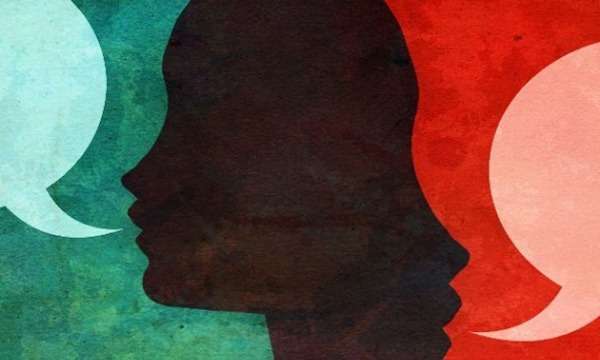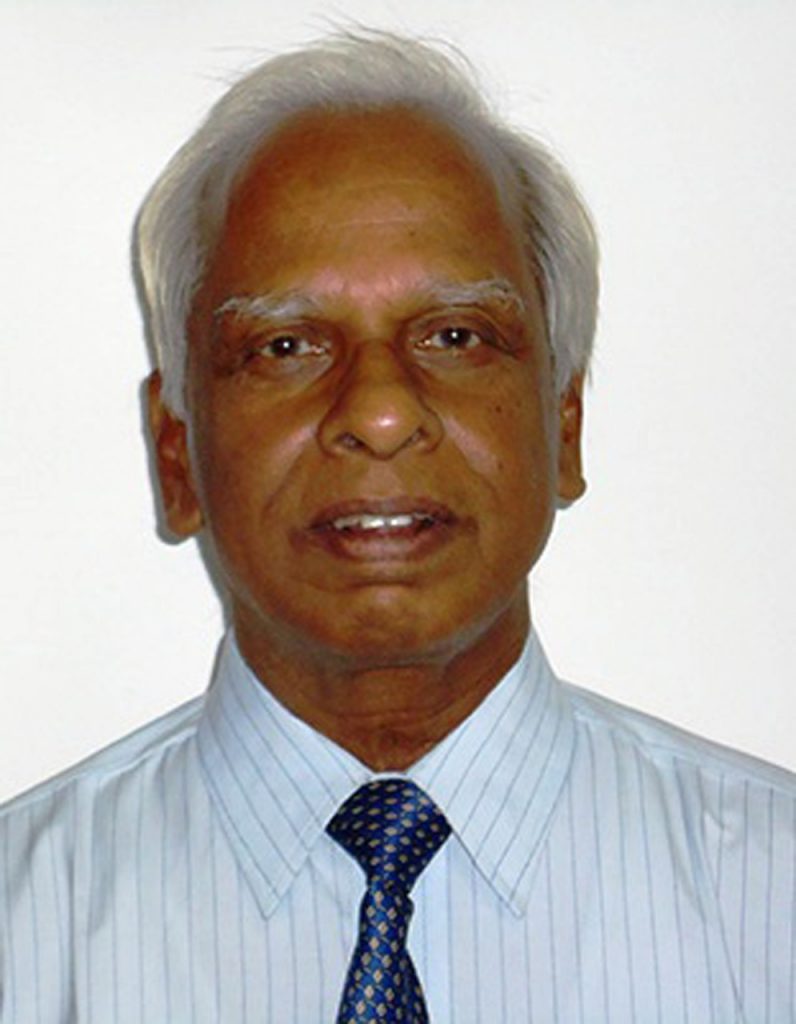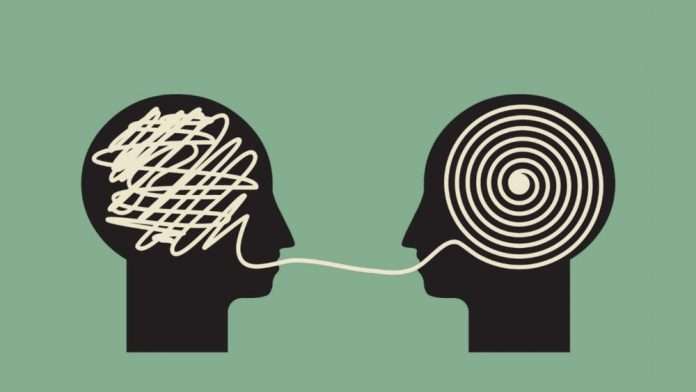These days people talk about the language of power. Hardly does anyone care to talk about the power of language. Maybe because it’s something they think too obvious to talk about! Power of language is readily conceded. More people are likely to buy “then pen is mightier than the sword” than the English proverb “hard words break no bones”. Now, if you are inclined to buy the latter, then I would invite your attention to a recent face book post of Raj Gupta, the eminent academic and scholar – “Wounds produced by words may be hardest to heal.”
There are innumerable stories in our classical literature that show the power of words. Vritra, Indra’s enemy, wanted to kill Indra but during the ritual, conducted for the fulfilment of his wish, he pronounced “Indra -shatru” with accent on the first syllable (“one whose killer is Indra”) instead of the second (killer of Indra”) and as a result, instead of being the killer of Indra, which he wanted to be, he got killed by Indra. Curses and blessings are utterances. A curse must be pronounced; there is no notion of an unpronounced curse. A blessing may not always be in the form of language; it may be given in the form of a ritual gesture (mudra). Sage Agastya cursed Nahusha, who was Indra then, that he become a snake and, in a flash,he became a snake. Sage Durvasa cursed Shakuntala and as a result, king Dushyanta, her husband, forgot her. When Yudhisthira sought his blessings on the Kurukshetra battlefield, Bhishma, fighting for his enemy, blessed him for victory.In the sixteenth century Odia poet, Balarama Dasa’s Lakshmi Purana, as a poor, low caste woman receives the blessings of the goddess, she attains happiness and prosperity.
Then there is the concept of a boon. A boon is not always a blessing; sometimes a reluctant god grants a boon to keep his word. He asks the one who has pleased him, often an asura (anti-god), what he wants and grants it (sometimes asks him to ask for something else) to him by uttering “tathastu (so be it)”. In sum, language has the power to change the existing situation. That was the belief.
It has always been known that language does not just inform, it also moves, although sometimes the latter function of it is lost sight of, so dominant is the generally-held idea about the function of language, namely communication, and communication is commonly thought of in terms of information – essentially, providing or disseminating information and sharing information. This view undermines the fact that we also use language to express feelings and emotions.

And information does not always come to us in a matter-of -fact manner. Think of this from Eduardo Galeano.Talking about a difficult time in Argentina, he says that there was no banning of books there. There was no need to do so, as we will see. “The new Penal Code”, he says in “Open Veins of Latin America: Five Centuries of the Pillage of a Continent”, “penalizes, as always, the writer and the publisher of a book considered subversive. But it also penalizes the printer (so that no one dare print a text that is merely doubtful) and the distributor and the bookstore (so that no one will dare sell it); and as if this weren’t enough, it also penalizes the reader, sothat no one will dare read it, much less keep it. Thus the consumer of the book gets the same treatment as the law applies to the consumer of drugs. In this program for a society of deaf mutes, each citizen has to become his own Torquemada.”
This is the power of language. Power knows it; therefore,they ban books. One might say, it’s not language, dear, but thoughts. Not really; unarticulated thoughts are harmless. Some say (among them, very distinguished thinkers) there aren’t languageless thoughts. But why enter into an argument? Not our concern at the moment! What is of consequence for now is this: can one read the extractabove as mere information? Can one remain emotionally unaffected by this information?
Now read this from Albert Camus’s “Resistance, Rebellion and Death” – it’s about the way a condemned man was treated in a prison in France at his times: “When the officials, whose job it is to kill that man call him a parcel, they know what they are saying. To be unable to do anything against the hand that moves you from one place to another, is this not indeed being a parcel, or a thing, or better, a hobbled animal? Even then an animal can refuse to eat. The condemned man cannot. He is given the benefit of a special diet (at Fresnes, Diet No.4 with extra milk, wine, sugar, jam, butter); they see to it that he nourishes himself. If need be, he is forced to do so. The animal that he is going to be killed must be in the best condition”. This is information but can one take in this information without being emotionally stirred?
This from Galeano’s classic, “Soccer in Sun and Shadow”. Here he contextualizes the 1978 FIFA World Cup held in Argentina. “Ten European countries, four from the Americas, plus Iran and Tunisia, took part. The Pope sent his blessings from Rome. To the strains of a military march, General Videla pinned a medal on Havelange during the open ceremonies in Buenos Aires’s Monumental stadium. A few steps away, Argentina’s Auschwitz, the torture and extermination camp at the Navy School of Mechanics, was operating at full speed. A few miles beyond that, prisoners were being thrown alive from airplanes into the sea.”
Can one read it, which is a telling of certain events,and not be moved, not be agitated?
It is said that a hunter hunts twice; hunting takes place twice – it takes place the first time when the hunter hunts and kills his prey. It takes place the second time when in the evening, the hunter narrates the hunting to his family sitting around a fire and roasting the animal, making it ready to eat. As words give form to memory, fact gets mixed with fiction, as the narrator tries to impress. We can imagine that if the hunting was a challenge, the hunter’s narrative was mesmerizing.
After the Great War at Kurukshetra was over, the Pandavas went to meet Dhritarastra, who he had revenge in mind. He revived the war in the palace of Hastinapur when he used guile and false words to crush Bhima, the killer of his hundred sons, to death. Bhima was saved through the intervention of Sri Krishna. Bhima never forgot it and never forgave him. In “Sarala Mahabharata”, he punished the old, blind, defeated and helpless Dhritarastra by narratives. He would sit with him and narrate, in meticulous detail, how he killed each of his sons, not ignoring his victim’s painful howls and the insulting words he hurled at him as he was killing him. Dhritarastra had heard about the killing of each of his sons from his minister, Sanjaya, as the War was going on. But Sanjaya was telling him facts when Bhima was reconstructing the event with hatred, malice and contempt, with the intention to inflict pain. The two narratives were different, as a result. The unfortunate father did not have the option of not listening to Bhima. He was condemned to listen.
Incidentally, Yudhisthira did not like it at all but he could not restrain the wild Bhima. In “Sarala Mahabharata”, there came a time, when Bhima was fearful and utterly helpless, and it was then that Yudhisthira punished him. Not for any single act of wickedness, but the totality of his wicked doings, in a way of speaking.
Returning to Bhima’s torturing of Dhritarastra, just imagine – no need to say what the poet said – how the latter would have felt listening to the gory details of Dussasana’s systematic dismemberment and his wild howls as Bhima was killing him slowly, bit by bit. Narrative – language – was Bhima’s instrument of torture for Dhritarastra.That’s the power of language. And don’t we, as we read about this episode, feel the agony of the helpless and blind victim of Bhima and even empathise with him? That’s the power of the poet, Sarala’s, language.
One could deal with the question of the power of language by explicating it, talking about it and philosophizing it in a scholarly manner. There is another way: don’t talk about it but make powerful literature, be it oral or written, be it imaginative or knowledge-based, available to the reader (or the hearer), so that he can experience the power of language.
And we believe the latterway is the better way.
(The views expressed are the writer’s own)

Prof. B.N.Patnaik
Retd. Professor of Linguistics and English, IIT Kanpur
Email: [email protected]
(Images from the net)

